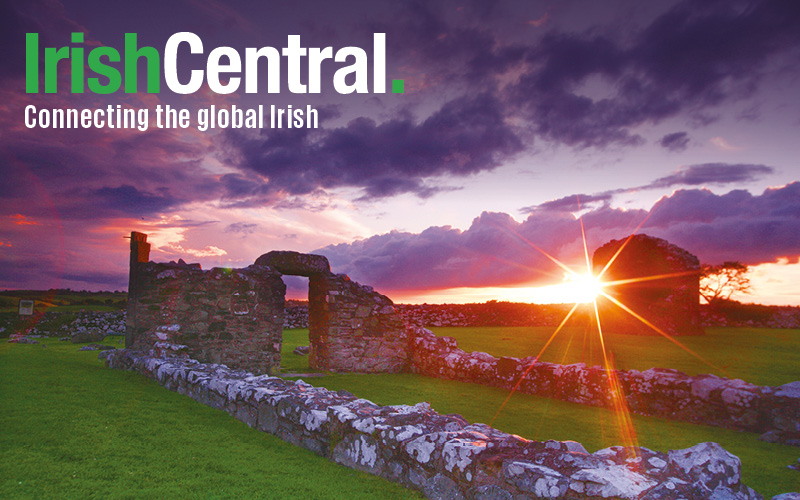The Irish are renowned throughout history for their contributions to literature and linguistic inventiveness, and these nominees for the IrishCentral Creativity & Arts award in the category The Written Word are prime examples.
On February 9, in New York City, after almost a decade spotlighting the extraordinary achievements of the Irish creative community in the country, America’s largest Irish website will be honoring the cream of the crop at the first IrishCentral Creativity and Arts Awards.
Tickets for this event are now SOLD OUT but you can join us on Facebook Feb 9 to watch it live with TG4.
The IrishCentral Creativity and Arts Awards sponsors include TG4, Feile 30, Irish American Writers & Artists, Slane Irish Whiskey, American Irish Historical Society, and Irish Network USA.
Forty nominees have been selected across eight categories: Media & Innovation, Voice of Today, The Stage, The Written Word, The Screen, Visual Arts, Fashion & Design, and Irish American Centers and Festivals.
VOTE – Have your say in the IrishCentral Creativity and Arts awards results here
While the public can vote for several of the winners in these categories, a judging panel will choose the winner from this extraordinary list of Irish/Irish American writers and their works, to be announced in an awards ceremony on February 9.
Learn all about their work here first.
Tender - Belinda McKeon
Belinda McKeon's first novel, "Solace," won the Geoffrey Faber Memorial Prize and the Sunday Independent Best Newcomer Award, and was named Bord Gáis Energy Irish Book of the Year in 2011, as well as being shortlisted for the James Tait Black Memorial Prize. Her essays and journalism have appeared in the New York Times, the Paris Review, the Guardian and elsewhere. She grew up in the Irish midlands and now lives in New York. She teaches at Rutgers University.
The County Longford-born writer’s beautifully written second novel, "Tender," is about being young and in love in Dublin, obsession, desire, art and friendship.
Ashes of Fiery Weather - Kathleen Donohoe
Kathleen Donohoe was raised in Brooklyn, New York in a family of New York City firefighters.
Her stories and essays have appeared in The Recorder: The Journal of the American Irish Historical Society, New York Stories, Web Conjunctions, Washington Square Review, Irish America Magazine.
The Brooklynite's debut novel, "Ashes of Firey Weather," an authentic and gripping novel about the lives of six generations of women from firefighters’ families up through the era of 9/11, reveals her to be a natural storyteller.
She currently lives in Brooklyn with her husband and son and is at work on her next novel.
The Immortal Irishman - Timothy Egan
Timothy Egan comes from a family of nine, from a mother who loved books and a father with the Irish gift of finding joy in small things. He worked on a farm, in a factory, and at a fast-food outlet while muddling through nearly seven on-and-off years of college.
He is the author of eight books. His book on Edward Curtis, "Short Nights of the Shadow Catcher," was awarded the Carnegie Award for best nonfiction. His account of the Dust Bowl, "The Worst Hard Time, " won the 2006 National Book Award.
A lifelong journalist, Egan now writes an online opinion column for The New York Times. Prior to that, he worked as a national correspondent for the Times.
At the center of the sweeping, epic narrative in Egan’s eighth work of non-fiction, "The Immortal Irishman," is Thomas Francis Meagher, the Irish revolutionary who became a general in the Union Army during the American Civil War and then acting governor of Montana Territory before his death at age 43.
9th Annual Poetry Fest – Irish Arts Center, NYC
The only literary event of its kind, the Irish Arts Center’s ninth annual PoetryFest gathered poets from Ireland and North America for three days of verse and conversation.
The 2017 lineup included former U.S. poet laureate Billy Collins; National Book Award for Poetry-winner and MacArthur Genius Grant-recipient Terrance Hayes; U.S.-born, Ireland-dwelling poet-filmmaker Alice Lyons; Sinéad Morrissey, winner of the 2017 Forward Prize for Best Collection for On Balance; Dublin poet-physicist Iggy McGovern; Ireland Professor of Poetry Eiléan Ní Chuilleanáin; Irish Times Poetry Now Award-winning poet/critic Caitríona O’Reilly; Whiting Award-winning New York poet Rowan Ricardo Phillips; and 2017 Seamus Heaney Centre Prize-winner Adam Crothers. Stonecutter founder Katie Raissian curates Saturday's Emerging Voices reading, which features Mad Honey Symposium author Sally Wen Mao and This Is Yarrow writer Tara Bergin.
Cookstown, Co. Tyrone-born poet and novelist Nick Laird, curating for the 2nd year, said that in an era of demagoguery “to read poetry, to come and hear poetry is to return to a space of complexity, of second thoughts, of third thoughts, of ambiguity and of empathy.”
End of Outrage – Breandán Mac Suibhne
Breandán Mac Suibhne is a historian (PhD, Carnegie Mellon, 1999) of society and culture in modern Ireland, particularly Ulster, with special interests in the politics of identity in the late eighteenth and early nineteenth centuries, the Great Famine, migration, oral history, and the Atlantic. Mac Suibhne’s publications include two major annotated editions, viz., "John Gamble’s Society and Manners in Early Nineteenth-Century Ireland," a compendium of the travel-writing of a hard-living doctor, and, with David Dickson, Hugh Dorian’s "The Outer Edge of Ulster," the most extensive lower-class account of Ireland’s Great Famine.
He was a founding editor, with critic Seamus Deane, of Field Day Review (2005–), a journal of political and literary culture, and, with Enda Delaney (U. Edinburgh), he edited Ireland’s Great Famine and Popular Politics. He has received several major awards including a National Endowment for the Humanities Fellowship, a Fulbright Scholarship, an American Philosophical Society Franklin Research Grant, a John F. Kennedy Scholarship, and fellowships in the Moore Institute for the Humanities and Centre for Irish Studies at the National University of Ireland, Galway.
His extraordinary latest work of history, "The Edge of Outrage," examines the massive changes wrought by the Famine in the scholar’s own part of Donegal by focusing on how tensions arose within the Molly Maguires in the 1850s about how to respond in a transformed world.



